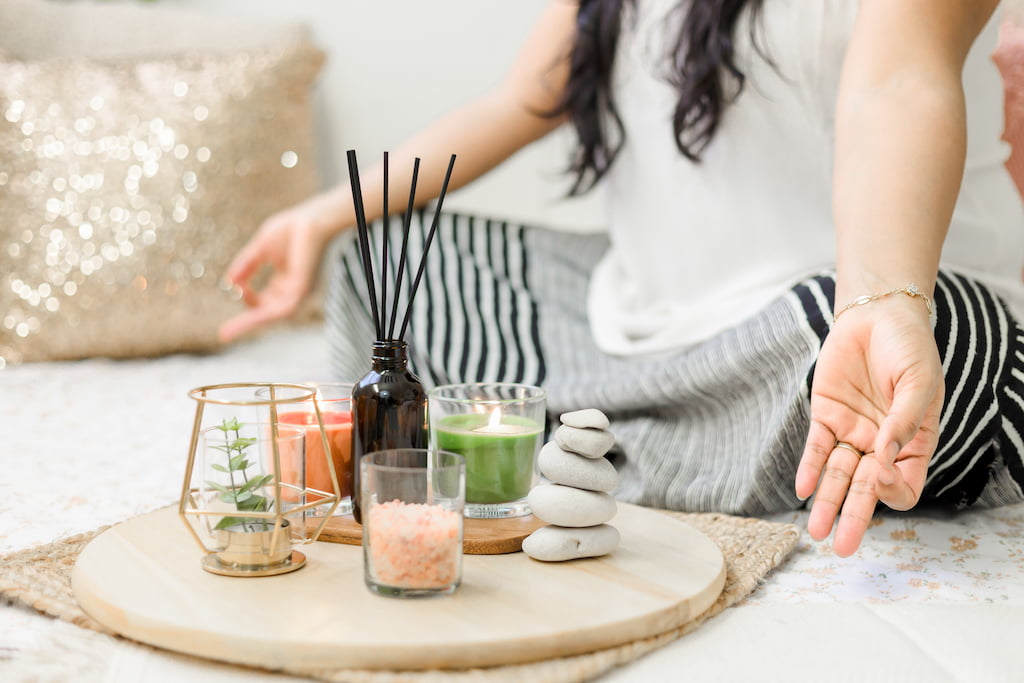How to Transform Gratitude from an Instinct into a Practice

Contents
Remembering to feel grateful for the things we have is becoming increasingly difficult amidst the fast-paced lives we lead… We know what gratitude is, we recognize that it’s a positive feeling to have, but do we really feel its presence on a daily basis? Do we really remember to be thankful for the little things we accomplish while running our daily errands? Sometimes we may feel like gratitude is a feeling that should just emerge on its own, organically, and yet the fact is that gratitude is a habit, a practice we must develop in order to feel on a daily basis.
Appreciation, gratitude, giving thanks… It doesn’t matter what we call it; what matters is focusing on the meaning behind the words. You can always give thanks to a higher being that you believe in, the universe itself or even to a person that makes you happy. What’s important for us to realize is that over time we can develop the ability to keep that feeling of appreciation alive and well throughout your life.

In the past few years, gratitude has become a focal point of positive psychology. This is largely thanks to research that has been done around this feeling. As scientists put it, gratitude is one of the main building blocks toward having a healthy mental and physical state of being. The more natural and consistent we become in feeling and expressing gratitude for any of the many parts of our lives, the more we benefit physically, mentally and emotionally from that habit. On the whole, practicing gratitude makes us feel more positive and patient and less selfish and frustrated. As we’ve discussed in our previous posts, gratitude provides us with physical comfort, enables us to form healthier, more positive relationships and increases our happiness and sense of optimism.
The quickest way to develop our instinct for gratitude is to pay attention to its closest sources, those being our emotions and sensations.
Why Have We Abandoned Our Instincts?
Gratitude is an instinct that exists in all of us, but like most our instincts it needs to be given proper attention so that it may develop. We tend to focus so much on negative situations and aspects of our lives that complaining is our first instinct, rather than giving thanks. Even when we’re wishing and hoping for something, when we finally receive it, we don’t often feel that elation and appreciation that we may have expected to feel. That is to say, we don’t give thanks for achieving or obtaining what we want, at least not to the same degree that we yearned for it.
Instead, we tend to focus on all of the things that went wrong while we were getting what we wanted. The plane was delayed on our trip to Italy, the renovations took one week longer than we expected for our new kitchen, we have to work long nights and sometimes over the weekend to get that promotion—you get the idea. We’ve all experienced those situations and we’ve all spent many hours of our lives recounting the struggles we faced to finally get what we wanted.

How can we develop our ability to practice gratitude?
Not everything in our lives needs to be going smoothly and perfectly in order for us to practice gratitude. In fact, much of what makes up gratitude is knowing, being aware and being appreciative. To be able to express gratitude, we need to be aware of what we have to be grateful for. This allows us to reap the benefits of gratitude. So, ask yourself: Are you able to give thanks in the same, passionate way you’re able to tell someone you love them?
How Can I Develop My Instinct for Gratitude?
The quickest way to develop our instinct for gratitude is to pay attention to its closest sources, those being our emotions and sensations. Taking a deep, refreshing breath in, smelling the scent of a ripe fruit, watching the sunset, tasting your coffee, or feeling the purr of a cat by your side….These are just some small examples of things we encounter every day and can be grateful for. Yet how how can we be thankful for those small things if we don’t notice them? We can’t. Only by living in the moment, can you begin noticing these small blessings and begin to appreciate them on a consistent basis. When we start to go through our day more mindfully, letting our senses and emotions lead the way, we’ll start to notice the joy we feel in putting on a comfortable sweater, hearing your child’s laugh, picking out food at the market, or even fixing something in your house. All these and more can evoke our instinct for gratitude, if we’re ready to let it.

5 Exercises to begin practicing gratitude right now.
There are some simple exercises that you can start today to help you wake up those gratitude muscles. Just like anything you want to learn, it requires commitment and consistency. Here are five ways you can pick and choose from to invite more gratitude into your daily life:
1.Get a notebook that will be dedicated specifically to things and people you’re grateful for
Each page can cover a period of 3 or 5 years, depending on how big a notebook you’ve chosen. Then every night or every morning, write down 3 things, people, or situations you’re grateful for. Over time this will becoming increasingly easier and there will be days when you flip back through the pages and are reminded of all of the pleasant things have occured over that time period.
2.Create a Gratitude Jar
It doesn’t matter what shape it is but make it a big one, so that it will last a long time. Write one thing you’re grateful for every day on a small piece of paper and throw it into the jar. Pick a random one out whenever you’re having a difficult day and read it to remind yourself of the beauty in life.
3.Start your day by giving thanks.
Stay in bed just a little while longer and think of whatever it is you’re grateful for. Maybe it’s your sweetheart, lying next to you, maybe it’s the fact that you slept well and feel refreshed, or it could even be that you’re grateful simply because you woke up at all…
4.Set a gratitude alarm
Take advantage of the opportunities technology gives you and set an alarm that will actively remind you to give thanks at a specific point in the day. That way, you can start being more aware throughout the day, feel the force of your existence and express your gratitude for it. You can begin living your life more fully. If you have a tight schedule, you can set your alarm for different times throughout the day, to accommodate your needs, so long as you take the time to notice the beauty around you.
5.Pick an object that reminds you of gratitude
This could be something like a necklace or a small object you can keep in your wallet. It can be something that’s a color you like or has a pattern you find beautiful. Whatever you choose, make it something you enjoy looking at, preferably something you’ve recently acquired. Let it be something that can become one with its purpose, that can remind you to give thanks every time you look at it.

The More You Do It, The More It’ll Stick: So, Let It
Gratitude can become a practice that takes many forms, depending on the depth of your imagination. The only thing you need to do is to keep at it. When you first start practicing gratitude your mind may want to be lazy and
Share with us in the comment section below any strategies or techniques you use to practice gratitude.


